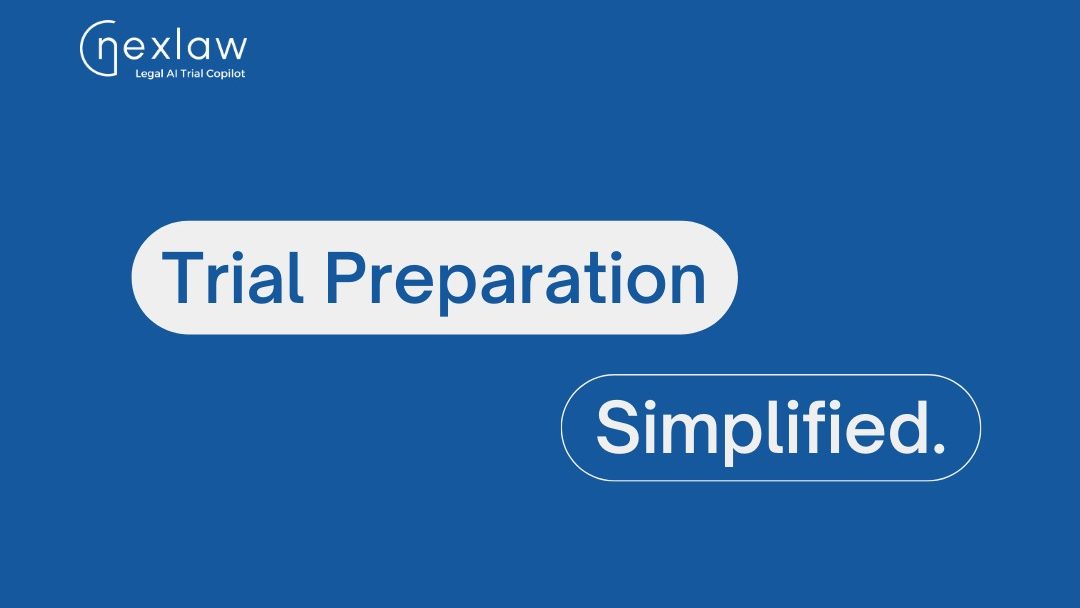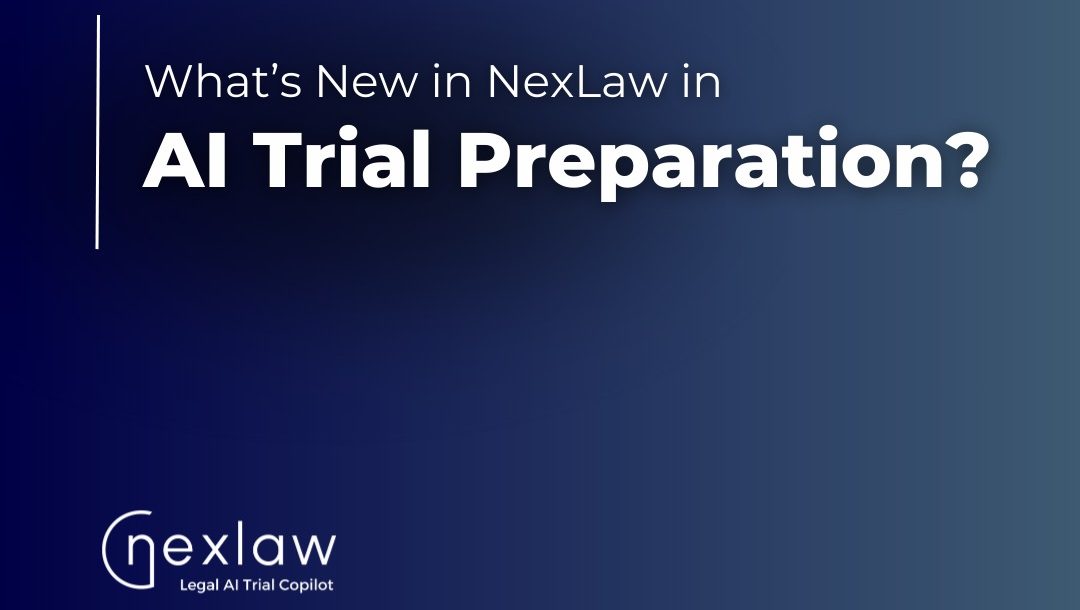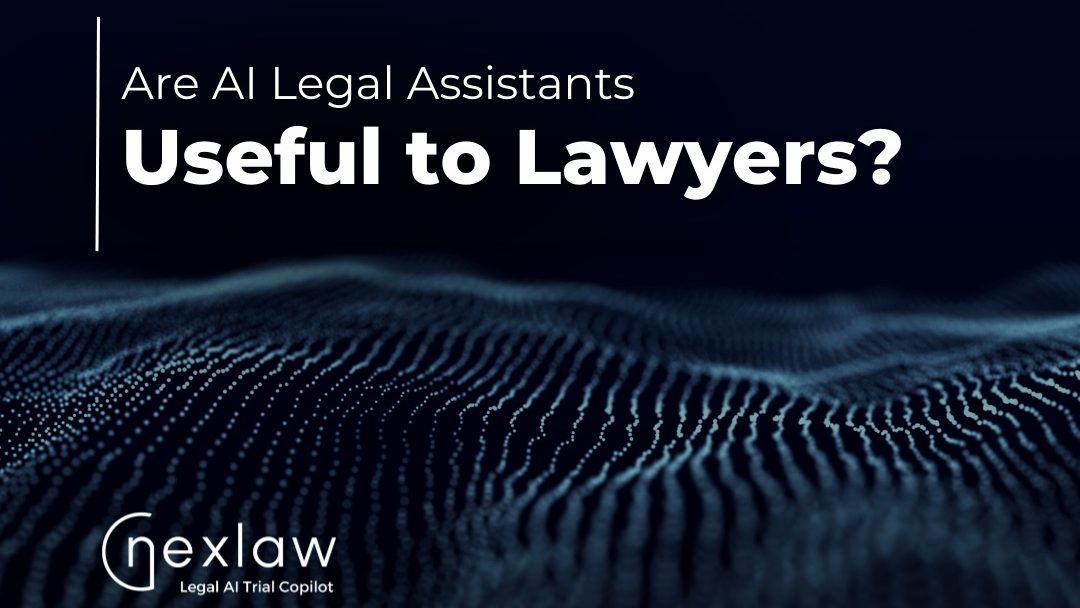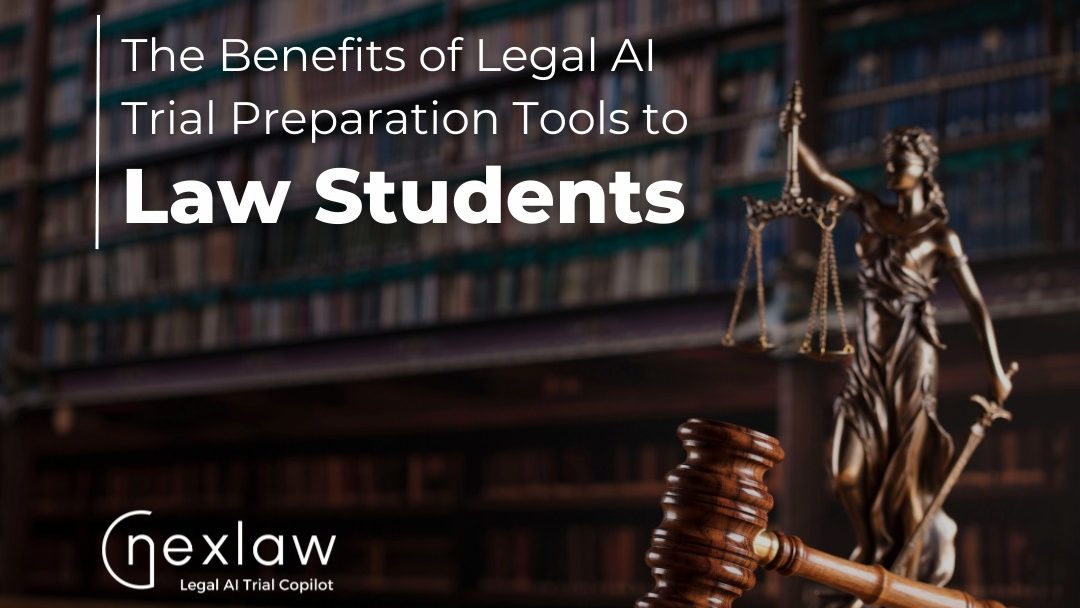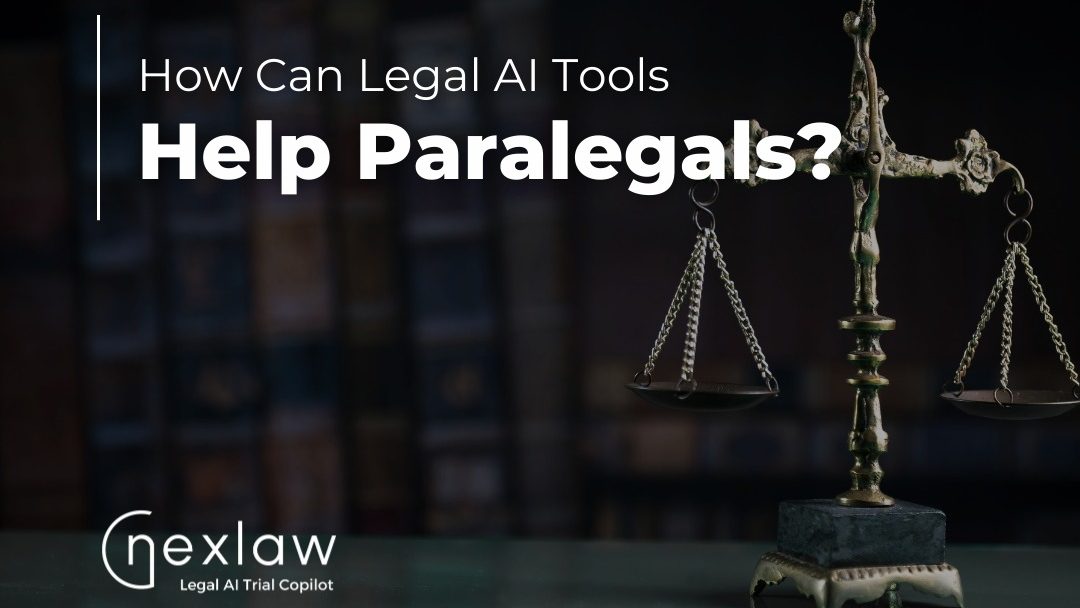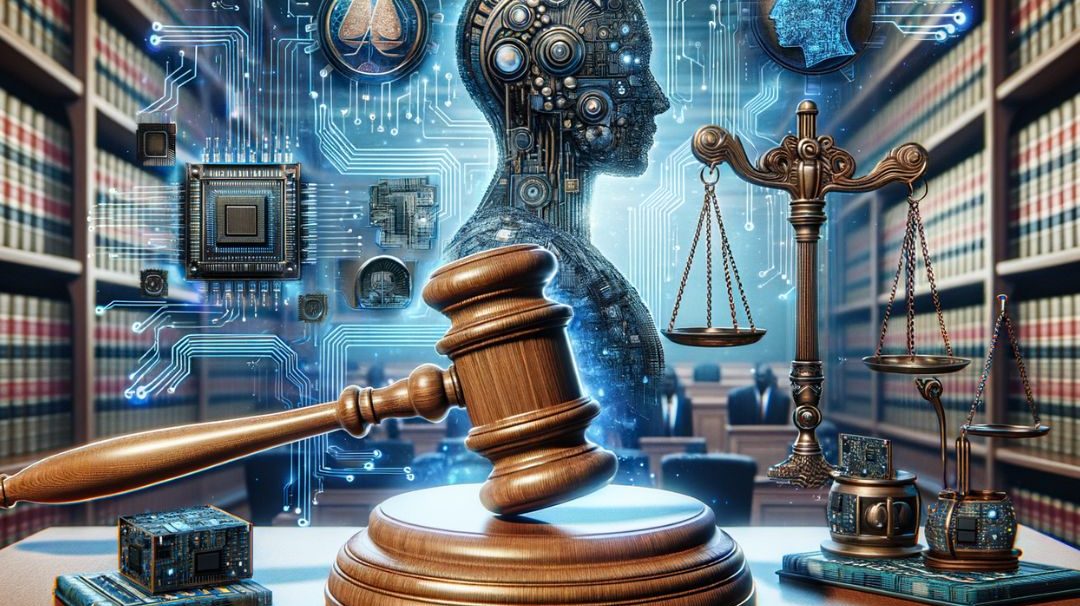Introduction to Legal Technology: Explaining the Basics

Related Posts
Introduction to Legal Technology: Explaining the Basics
In recent years, technological advancements have permeated nearly every aspect of our lives, and the legal industry is no exception. Legal technology, often abbreviated as “legal tech”, refers to the use of technology to streamline and enhance various processes within the legal sector. From research and document management to client communication and case analysis, legal technology, including AI in legal, offers a wide array of tools and solutions designed to improve efficiency, accuracy, and accessibility in legal practice.
Understanding the Basics of These Innovative Approach
What is Legal Technology?
Legal tech is a broad term that encompasses any technology that is designed to assist or enhance the practice of law. Legal tech can be divided into two main categories: front-end and back-end.
Front-end legal tech refers to the technology that interacts directly with clients, such as online platforms, chatbots, portals, and apps. These tools can help clients access legal information, find lawyers, communicate with their legal team, and manage their cases.
Back-end legal tech refers to the technology that supports the internal operations of lawyers and law firms, such as document management, contract analysis, e-discovery, billing, and accounting. These tools can help lawyers automate repetitive tasks, improve productivity, reduce errors, and optimize performance.
Legal technology is revolutionizing the way law firms, and legal departments operate, offering a range of tools that can transform routine tasks, improve accuracy, and enhance client service. But what exactly is legal tech? In its simplest form, legal technology refers to the devices and methods that make interacting with the law more efficient.
The pressure on legal teams to streamline time-consuming processes is intense. By automating these processes, legal tech offers greater speed, precision, and efficiency. More than that, it is designed to be transformative for legal organizations.
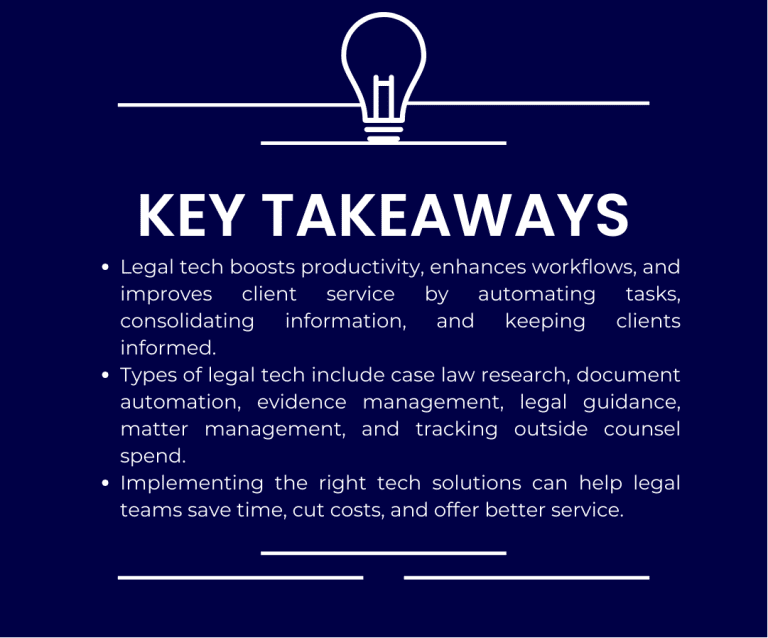

What is a Legal Software System?
A legal software system is a suite of tools designed to help law firms manage daily operations, such as e-signatures, legal accounting, appointment scheduling, and document automation.
Types of Legal Software Systems
Law firms use various types of software, such as:
- Case Management: Stores and manages client data.
- Billing Software: Tracks billable hours accurately.
- Document Automation: Streamlines document creation.
- Online Payments: Compliant with trust accounting rules.
What is Litigation Technology?
Litigation technology refers to software or applications that streamline the litigation process, from managing trial documents to e-discovery.
What is a Legal Technology Professional?
A legal technology professional helps law firms implement and manage legal software solutions. These professionals may not have a legal background but are skilled in integrating technology into legal services.
Legal AI in the Legal Industry
Legal technology works by automating and streamlining legal tasks, reducing the time and effort required to complete them. For example, AI for lawyers that can quickly analyze vast volumes of legal texts, processing them to create concise summaries for users. The Growing Influence of Generative AI on the Legal Industry eliminates the need for legal professionals to spend hours manually reviewing legal documents, freeing up their time to focus on more critical aspects of their cases.
NexLaw addresses the challenges of legal professionals by providing AI-driven solutions that streamline legal tasks, enhance efficiency, and improve accuracy. NexLaw’s core features and how they address legal challenges are as follows:
Case Law Search:
NexLaw’s Case Law Search feature addresses the challenge of time-consuming legal research by providing AI-powered global legal knowledge. It offers advanced search capabilities, comprehensive database analysis, and data-driven insights, enabling legal professionals to make informed legal strategies with ease.
Legislation Search:
NexLaw’s Legislation Search feature addresses the challenge of repetitive and time-consuming legislative research by providing AI-driven insights and recommendations. It offers in-depth analysis of extensive legislative databases, maximizing efficiency and precision.
Case Law Summarizer:
NexLaw’s Case Law Summarizer feature addresses the challenge of complex legal information by providing concise summaries that enhance understanding and streamline workflow.
Contract Review:
NexLaw’s Contract Review feature addresses the challenge of contract management by providing AI-driven insights and recommendations. It offers upfront issue identification, enriched negotiation strategy, and detailed scrutiny, ensuring compliance and reducing risks.
Legal Writer:
NexLaw’s Legal Writer feature addresses the challenge of drafting legal documents by providing AI-driven assistance. It offers meticulously trained expertise in laws and cases, simplifying document management and reducing errors.
Legal Research:
NexLaw’s Legal Writer feature transforms the way legal professionals approach case evaluation and research. It enables users to investigate relevant case law and crucial information using an extensive range of resources.
Why is Legal Technology Important?
Technology has reshaped the legal industry, especially since the 2020 pandemic, with virtual meetings, online payments, and cloud-based systems becoming the norm. It benefits everyone involved in the legal process—lawyers, judges, and clients—by making legal services more efficient and accessible.
The Benefits of Investing in Legal Tech
Legal technology can benefit legal professionals in several ways, including:
Enhanced Efficiency: Legal tech solutions can streamline legal tasks, reducing the time and effort required to complete them. This frees up legal professionals’ time to focus on more critical aspects of their cases.
Improved Accuracy: Legal tech tools leverage advanced algorithms and data analysis techniques to improve the accuracy and reliability of legal research, document drafting, and case analysis.
Cost-Effective: Legal tech solutions can be more cost-effective than traditional legal services, reducing the cost of legal work and making it more accessible to a wider range of clients. Check out AI tools at Dang.ai.
Accessible: Legal tech solutions are designed to be accessible to legal professionals of all skill levels, making it easier for them to access and utilize legal knowledge.
Increased Productivity: Legal tech speeds up routine tasks, such as preparing legal documents with access to templates and forms.
Enhanced Client Service: Online client portals keep clients informed and involved in their cases, leading to better client satisfaction.
While the initial cost of legal tech may be significant, the overall benefits, including greater efficiency and reduced costs, far outweigh the investment. As your services improve, your firm’s reputation and business will grow.
How to Implement the Right Legal Tools
Researching and selecting the right legal tech tools can feel overwhelming, given the vast number of options. Here are some steps to guide your decision-making process:
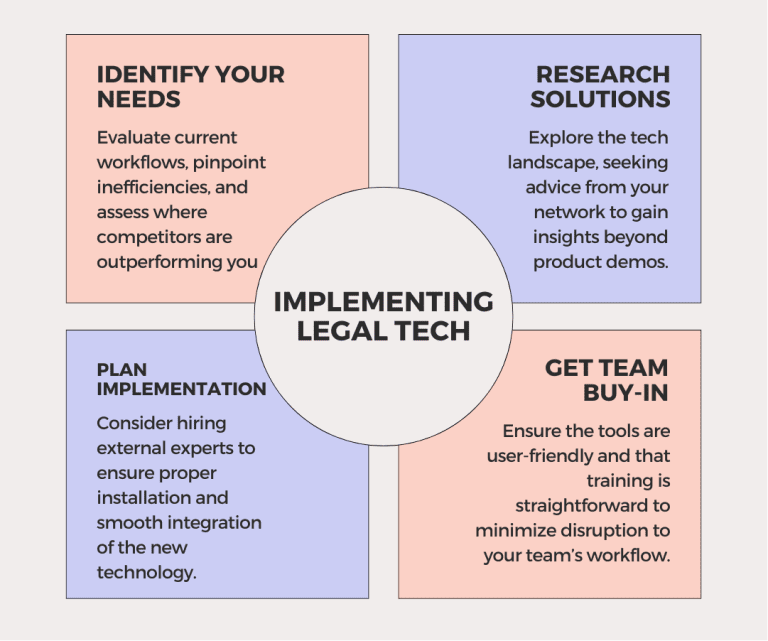

By investing in the right legal technology, your firm will not only become more efficient and productive but will also enhance the value you offer to your clients. For more insights into modernizing your law firm through technology, download our white paper on law firm transformation.
Are You Familiar with These Must-Know Legal Tech Tools?
Stay tech-savvy by understanding these 18 essential tools—from e-discovery to AI-powered legal research. Legal tech is transforming the profession, making it crucial for lawyers to stay updated.
Top 10 Best Legal Tools for Lawyers
Legal practice is shifting, and lawyers today need to be more than just legal experts; they need to navigate technology too. Though tech can seem overwhelming, it can improve workflows, streamline tasks, and unlock new opportunities.
Key areas of legal tech include:
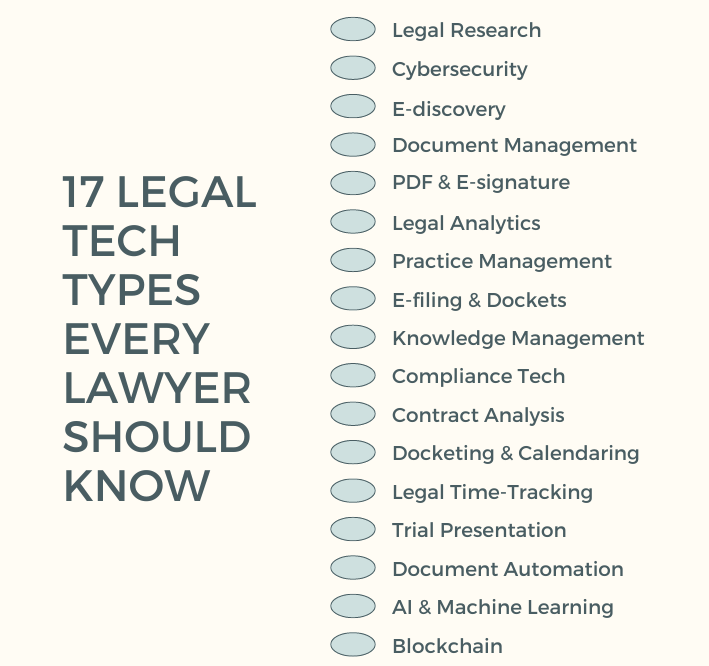

Investing time in mastering these tools will not only boost your efficiency but also position you as a forward-thinking legal professional. By staying ahead of the curve, you’ll be better equipped to navigate the evolving landscape of law, improve client service, and drive innovation within your practice. Embracing legal technology is a strategic move that will ultimately enhance your career and open new opportunities for growth and success in the field.
Types of Legal Tech and Their Use Cases
The market offers a wide range of tools tailored to specific legal needs, many of which incorporate AI-driven features. Below are some popular legal tech solutions:
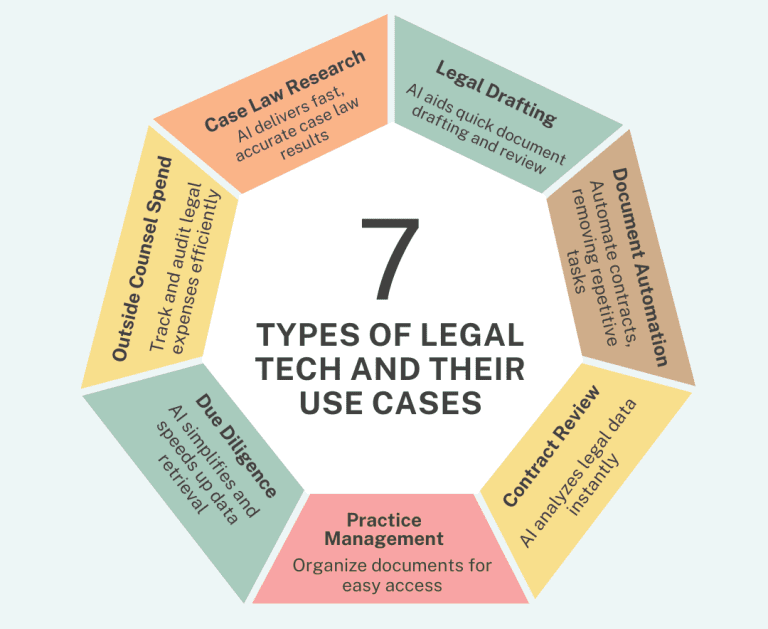

Final Thoughts
In an era defined by rapid technological advancement, the legal profession stands at the precipice of transformative change. As technology continues to evolve, the profound impact that AI in legal practice becomes increasingly apparent. Embracing this evolution and staying attuned to emerging trends and innovations is essential for legal professionals to navigate the shifting landscape effectively. By harnessing the power of legal technology, practitioners can not only adapt but thrive in the digital age, enhancing efficiency and better serving their clients.
Legal AI Company should epitomize this ethos, offering a comprehensive suite of tools tailored to meet the challenges faced by legal professionals. From streamlining legal tasks to enhancing accuracy through AI-powered analytics, NexLaw empowers practitioners to navigate complexities with ease. By leveraging cutting-edge AI legal assistant, NexLaw is reshaping the legal landscape, ushering in an era of unprecedented innovation, efficiency, and cost-effectiveness. With NexLaw, the future of ai and law is faster, smarter, and more client-centric than ever before.
As the legal industry continues to modernize, embracing technology will position you as a forward-thinking professional, ready to navigate the complexities of tomorrow’s legal challenges. The future of law is tech-driven, and the time to invest in these innovations is now.
Summer Wong
Content creator & copywriter @ NexLaw












